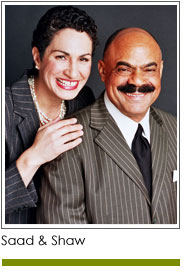 Are you an executive director who wonders why his development staff doesn’t raise more money? A college president who wishes her vice president was ahead of goal? Here’s a question to help answer those questions: what are you willing to do? Your nonprofit’s fundraising results are a reflection of your commitment and your willingness to prioritize fundraising, and your words are a reflection of that commitment. Consider the following things we have heard nonprofit leaders say. Do you hear yourself in these comments? What can you do to change?
Are you an executive director who wonders why his development staff doesn’t raise more money? A college president who wishes her vice president was ahead of goal? Here’s a question to help answer those questions: what are you willing to do? Your nonprofit’s fundraising results are a reflection of your commitment and your willingness to prioritize fundraising, and your words are a reflection of that commitment. Consider the following things we have heard nonprofit leaders say. Do you hear yourself in these comments? What can you do to change?
“Let my assistant to arrange a time for us to talk.” This is a favorite because it often takes weeks to secure an appointment. “Once you have done your homework, call me and I will close the deal.” Does this make any sense? How many nonprofit leaders are so sought after that their presence at the point of solicitation will “close the deal?”
“It’s your job to raise the money.” This belief is a luxury no executive can afford. Regardless the number of development professionals employed, you are the chief fundraiser. Your staff’s ability to raise money requires your active participation.
“I want you to make at least 20 calls a week.” Another favorite. Who will your staff call, who will want to talk with them, and what are they calling donors about? “I want you to chair the homecoming dance committee.” There are many variations on this theme: all pull development staff away from fundraising. Unless there are clear revenue goals keep your development staff out of events.
“Have you asked the board members for their gifts?” Major red flag. Expecting staff to solicit board members is a recipe for low giving. This is the responsibility of the board chair or chair of the board development committee.
“You don’t need to know my travel plans.” This closes the door to fund development and fundraising opportunities. Your staff can suggest visits to current or potential major donors and influencers, help coordinate a friendraiser, or a visit to a foundation or corporation who funds nonprofits similar to yours. Other favorites include: “I want you to raise 50% more than you did last year.” “I’m launching the campaign in spite of what the feasibility study says.” “We don’t need to be spending money on a feasibility study.” And, “I underestimated: we have a short fall of 20% that you will need to raise.”
Statements like these drive development professionals crazy, contributing to high turnover. If you don’t know why these statements can put your organization or institution at risk ask your development staff. If you’re not that brave, ask a peer who is a successful fundraiser.
Next week: things development professionals say. Visit www.FUNdraisingGoodTimes.com for a longer list.
Copyright 2014 – Mel and Pearl Shaw
Mel and Pearl Shaw position nonprofits, colleges and universities for fundraising success. For help with your campaign visit www.saadandshaw.com or call (901) 522-8727.
This is the first installment of a two-part series.










